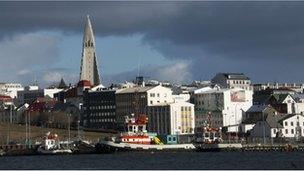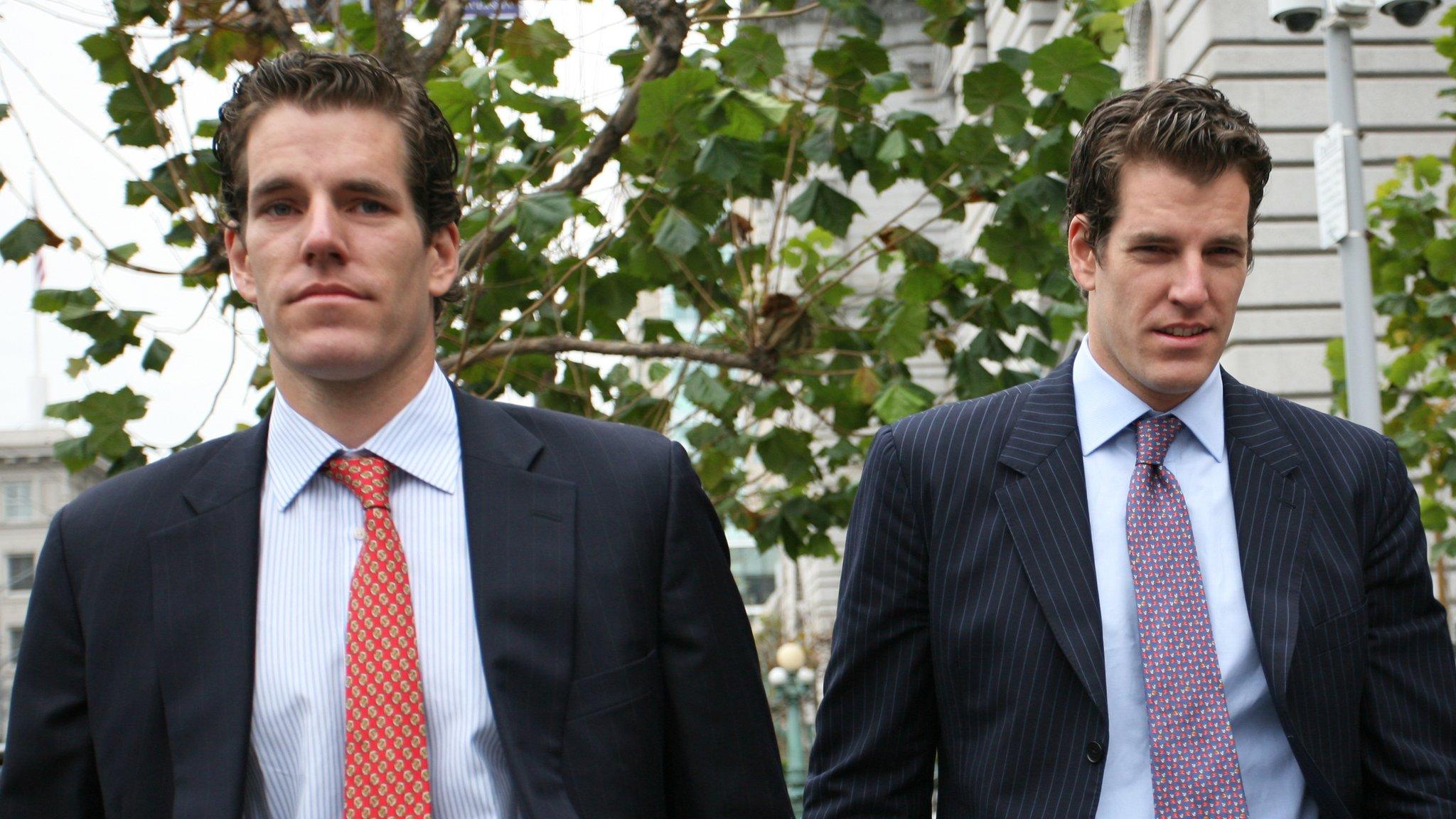The Bitcoin believers
- Published
- comments
Rory Cellan-Jones tries out the new Bitcoin cash deposit machine
On the 39th floor above Canary Wharf, overlooking London's finance centre, I found a cash machine with a difference. This ATM chews up your £10 notes rather than spewing them out, and in return you get a computer code. This is the world's first Bitcoin cash machine and if the people showing it to me are to be believed, it shows us the future of money.
I found it at the Bitcoin London conference, the biggest event about the crypto currency yet staged in the UK. The crowd at this event is young, mostly male - and often evangelical about the subject they have come to discuss.
These are interesting times to hold a Bitcoin conference. The currency has seen wild gyrations, with new investors rushing in, then rapidly finding that prices can go down as well up. Regulators have been taking a closer interest, particularly since another innovative currency scheme, Liberty Reserve, proved to be a haven for criminals and money launderers. And on Tuesday, some of the biggest investors in Bitcoin, the Winklevoss brothers of Facebook fame, have announced plans to float a business based on the virtual currency.
If you were looking for reasons to be either cheerful or cynical about the prospects for Bitcoin, you could have found both in the conference room high above Canary Wharf.
What struck me was how professional, intense and deeply knowledgeable about their subject most of the speakers seemed. The professionals have moved in. "It's not a bunch of 16-year-olds in basements any more, it's institutions," as one speaker put it. There were lawyers, venture capitalists and software developers, as well as people who had just put a lot of their own money into Bitcoin.
There was plenty of hype about the prospects for the currency:
"The biggest invention since the internet"
"The ability to transfer money for free - how is that not going to take off?"
"Our children are going to laugh at how our world worked"
Other speakers predicted that Bitcoin would become the natural means of exchange in African countries, where so many people have mobile phones but so few have bank accounts. And another described how Iceland, already a digital pioneer, could switch entirely to Bitcoin.

Could Iceland be an early adopter?
The strong libertarian tendency that is a characteristic of Bitcoin enthusiasts was on display too, with speakers railing against regulation in the United States: "Stay the hell away from the US" was the advice to a query from someone wanting to know where best to set up a Bitcoin business. Somewhat surprisingly, a lawyer who worked in this field told the conference that the EU was five years ahead in the way it thought about framing policies for Bitcoin and other virtual currencies.
But amidst all the enthusiasm, there were still questions about the long-term viability of the idea and how likely it was to enter the mainstream. One sobering moment came when a software developer described how he'd lost 7,000 Bitcoins because they had not been backed up properly to his computer. That had cost him about $200,000 which he would never see again. "You get over it," he told the crowd.
And the sheer complexity of getting and spending Bitcoins is another issue. Asked how the attractions of the currency would be communicated to the public, one speaker said everyone would need to learn computer science. Good luck with that...
For myself, I am beginning to get the hang of how you obtain the virtual currency - it is spending it which is the bigger problem. I already had a Bitcoin wallet on my phone, which meant using the ATM at the conference was relatively simple. I showed the machine the barcode which is the public address of my wallet, and once I'd inserted a £10 note into the slot, it popped up as roughly 0.2 Bitcoin on the phone screen within seconds.
In all I had 0.7 Bitcoin - worth about £43 at Tuesday's exchange rate. And by this time I was hungry. Sadly, nowhere nearby seemed to take Bitcoin in exchange for food. Evangelists for the crypto currency say it's flexible, durable, secure and transportable. Now all they need to do is make sure it's useable.
- Published2 July 2013
